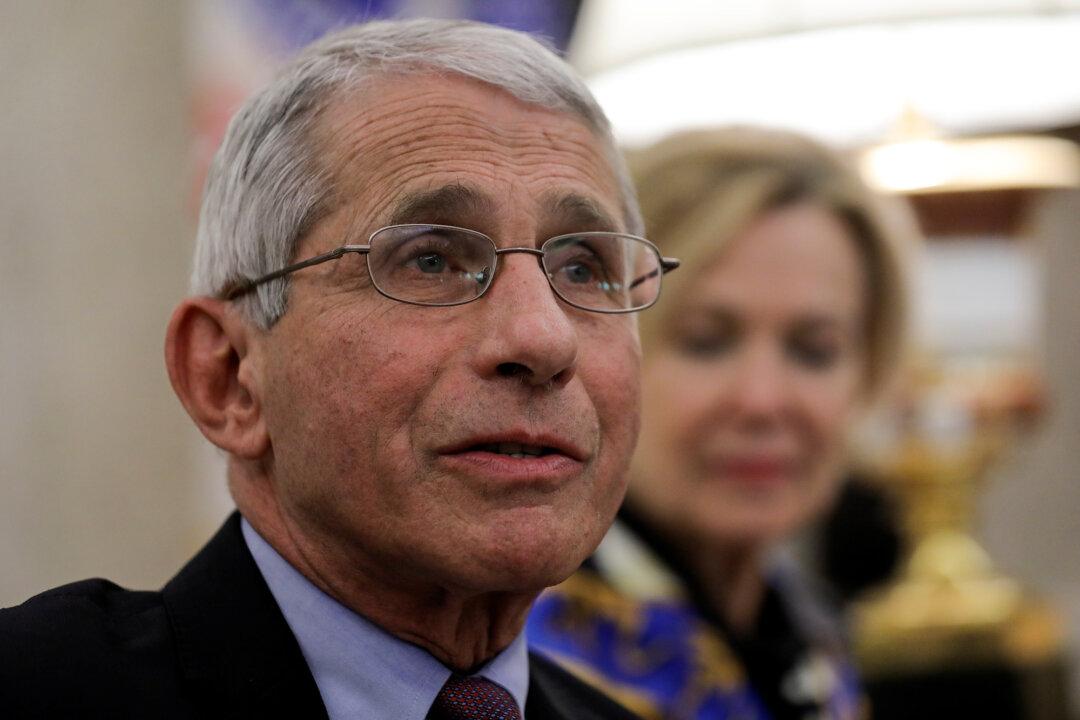The infectious diseases expert said there is no evidence that hydroxychloroquine is effective against the CCP virus, but he did not call for an outright ban on the medication.
National Institute of Allergy and Infectious Diseases Director Anthony Fauci, a member of the White House’s task force on the virus, said the anti-malarial drug isn’t effective, based on the available data.





